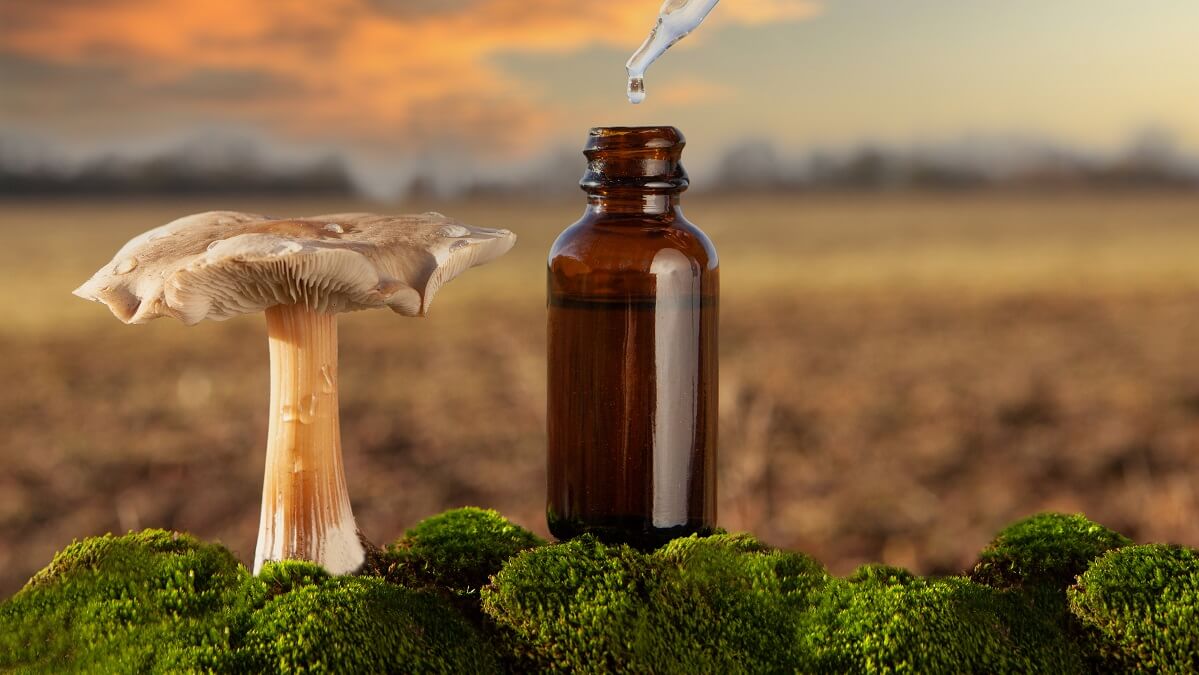Once the sole domain of hippies and burnouts, psychedelic drugs are making a push into the mainstream as a credible treatment for many addiction and mental health issues. And now the regulatory authority is getting on board.
More and more Australians are turning to psychedelic substances such as psylocibin (the active ingredient in ‘magic mushrooms’) and MDMA (found in ‘ecstasy’) for a range of health conditions.
These include issues such as post-traumatic stress disorder (PTSD), depression and end-of-life anxiety as well as alcohol and nicotine dependence.
Historically, any attempts to provide these alternative therapies have been illegal, and tended to attract ridicule from politicians and the public alike.
Read: New clinical trial on Alzheimer’s drug hailed as ‘historic’
Now, the Therapeutic Goods Administration (TGA) has announced that from 1 July this year, ‘medicines containing the psychedelic substances psilocybin and MDMA can be prescribed by specifically authorised psychiatrists for the treatment of certain mental health conditions.’
Australia is the first country to recognise psychedelics as medicines.
Prescriptions for medicines containing psylocibin will be permitted for those suffering from treatment-resistant depression, while MDMA will be availble for those with post-traumatic stress disorder (PTSD).
“There are currently no approved products containing psilocybin or MDMA that the TGA has evaluated for quality, safety and efficacy,” the TGA says.
“However, this amendment will allow authorised psychiatrists to access and legally supply a specified ’unapproved’ medicine containing these substances to patients under their care for these specific uses.”
The announcement marks a dramatic change in attitudes towards the use of psychelics in mental health treatment.
Just a few years ago, there was no official psychedelic research being conducted in Australia. Then, in 2019, the first official study of psylocibin’s effect on end-of-life anxiety began at St Vincent’s Hospital in Melbourne.
In 2020, Australia opened its first clinical psychedelic research lab at Monash University and this year there will be more than 15 active clinical trials around the country.
Read: Efficacy of COVID antiviral drug questioned in study
Mind Medicine Australia, a charity dedicated to expanding psychological treatment options, have been lobbying government regulators in Canberra to integrate these therapies into mainstream Australian medicine as soon as possible.
“We believe that psychedelic-assisted therapies, when used correctly and safely, can be immensely beneficial and provide an opportunity for transformational healing and remission from depression, end-of-life anxiety and stress PTSD, addictions and many other serious conditions,” the group says.
“Furthermore, it is a basic human right to have fair access to safe and effective medicines that are demonstrably beneficial for the treatment of mental illness. Innovation is so urgently needed to fix Australia’s broken mental health system.”
So why the push now? What makes psychedelic therapies effective where other medicines have failed?
In the case of psylocibin, the drug improves the physical connections between regions of the brain that can greatly improve depressive symptoms, even when other treatment methods have failed.
Read: Pharmacy chain wants to offer some PBS drugs for free
Research has found strengthening these connections helps a person avoid excessive self-focus.
Similarly, MDMA, found in the party drug ecstasy, has been found to have a positive effect on PTSD patients, especially where other treatment methods have fallen short.
MDMA in general produces a feeling of euphoria, with users reporting a feeling of general wellbeing and safety when taking the drug.
For this reason, it can make the recall of traumatic incidents easier to bear for PTSD patients, which in turn allows them to better work through their feelings with professionals.
One theory about why these psychedelic substances are so effective is their relationship to the neurotransmitter serotonin. Your serotonin levels directly affect your mood and anxiety levels.
Too much serotonin can lead to a manic state, too little to depression. Both psylocibin and MDMA work to regulate the amount of serotonin in your brain, so can help to reduce this brain ‘chatter’.
Mental health professionals are keen to stress that while psychedelic therapies show a lot of potential, the area is still in its infancy.
Dr Cathy Andronis, chair of special interests psychological medicine for the Royal Australian College of General Practitioners (RACGP), says much more research is needed before these therapies become mainstream. She adds that they won’t replace traditional psychotherapy.
“My take on it is that it offers possibilities for quite interesting and exciting new ways of managing mental illness, particularly chronic PTSD and traumatic experiences,” she says.
“But we need to be mindful that so far, available overseas studies have shown these substances have to be used in an incredibly controlled and very specific way to be effective.
“They’re really just tools to enable the best use of psychotherapy.”
Have you ever used a psychedelic substance? Do you think we should allow them in Australia? Let us know in the comments section below.


I think the treatment use use of LSD and psylocibin should be allowed. There was great progress in its use in psychotherapy and analysis in the late 60s in Holland. Great pity it was than banned.